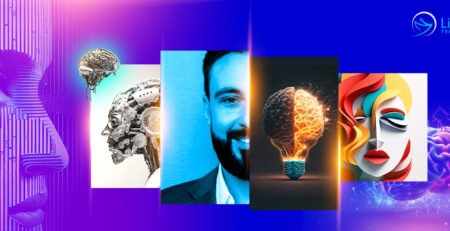The Impact of Artificial Intelligence (AI) in Healthcare IT
AI-powered equipment analyzes massive quantities of clinical statistics to discover the styles and developments human beings miss. This can be very useful to make greater correct diagnoses and increase personalized remedy plans.
For instance, AI-powered tools are getting used to expand new cancer remedies. These equipment can analyze heaps of statistics to become aware of genetic modifications associated with specific sorts of cancer. Thus, this information is used for relevant healing procedures which might be greater accurate and have lesser facet results.
AI is a on hand manner in rural and unserved areas wherein it’s far hard to locate any medical remedy on the earliest factor. Patients can expand direct touch with doctors and different healthcare vendors from anywhere in the world through the use of AI-powered telehealth systems. So in this manner, sufferers can get higher excellent care from authorized doctors or other health care carriers even if they live in far flung regions.
Using AI, we will automate some administrative tasks including scheduling appointments and processing claims, which may additionally help lessen expenses and lose healthcare workers to attention on supplying patient care.
AI is also getting used to increase new capsules and medical gadgets. AI-powered tools can be used to screen thousands and thousands of molecules to become aware of people who have therapeutic value. This can significantly speed up the drug discovery manner.
Here are some examples of how AI is used in healthcare IT today:
- Medical imaging analysis: AI can examine scientific photographs, which includes X-rays, MRIs, and CT scans, to pick out sicknesses and abnormalities. This can assist docs to offer accurate treatments and diagnoses to their sufferers.
- Risk evaluation: AI may be used to determine the possibility of contracting situations like cancer or heart ailment. Doctors can make use of this information to create individualized preventative and treatment regimens.
- Personalized medication: AI can increase remedy plans based totally on an affected person’s clinical history. This will ensure that the affected person gets an effective and appropriate remedy in line with his scientific records.
- Virtual care: AI can offer virtual care to sufferers through telehealth platforms. This lets patients develop direct touch with doctors and other healthcare carriers.
- Administrative tasks: We can automate administrative duties such as scheduling appointments and processing claims the usage of AI.
The Future Impact of AI in Healthcare IT
- Drug Discovery and Development: AI’s computational strength can boost up drug discovery with the aid of reading molecular structures and predicting ability drug interactions. This may want to cause greater efficient drug improvement procedures.
- Mental Health Diagnostics and Treatment: AI-powered tools will play an important function in diagnosing and monitoring intellectual health situations. Chatbots and apps could offer actual-time help, destigmatizing mental fitness care and making it greater accessible.
- Data-Driven Decision-Making: The integration of AI with digital health information will permit information-driven scientific decision-making. Physicians could have got entry to personalized remedy guidelines primarily based on comprehensive affected person statistics.
- Genomic Medicine Advancements: AI will retain to advance customized medicinal drugs with the aid of analyzing massive genomic datasets. This may want to cause extra correct genetic ailment predictions and tailor-made remedy plans.
Here are some of the challenges of AI in healthcare IT:
- Data privacy and security: AI structures collect and analyze large quantities of information, which raises concerns about privacy and protection.
- Accuracy and reliability: AI structures are still under development, and there is a danger that they may not be accurate or reliable.
- Cost: AI structures may be steeply-priced to broaden and implement.
- Acceptance by healthcare providers: Healthcare carriers may be reluctant to adopt AI systems if they are no longer acquainted with them or if they do not trust them.








